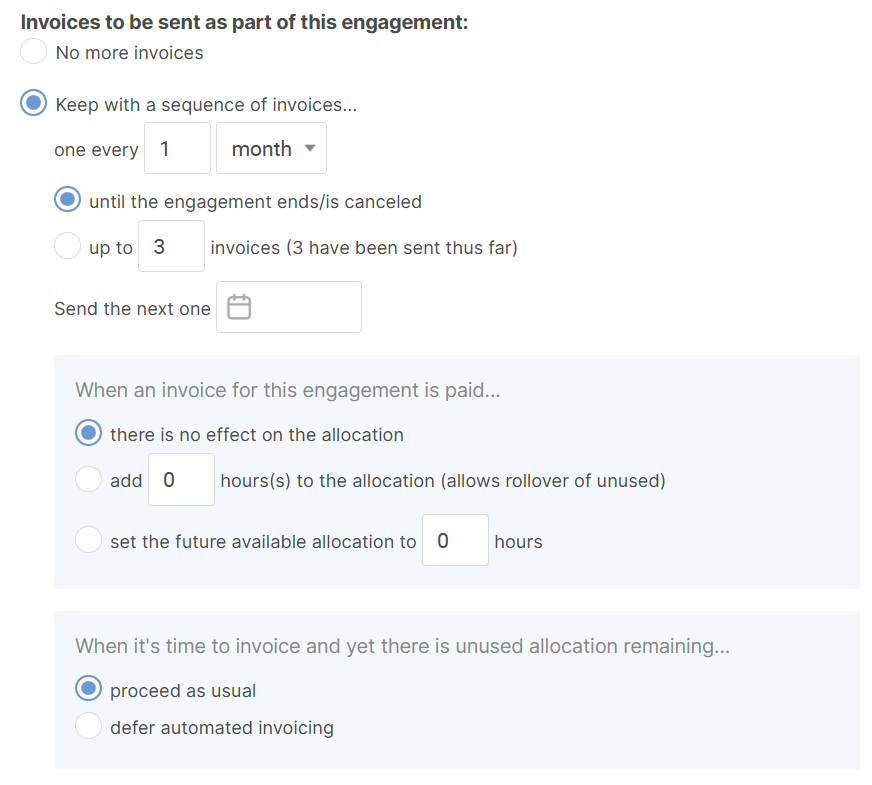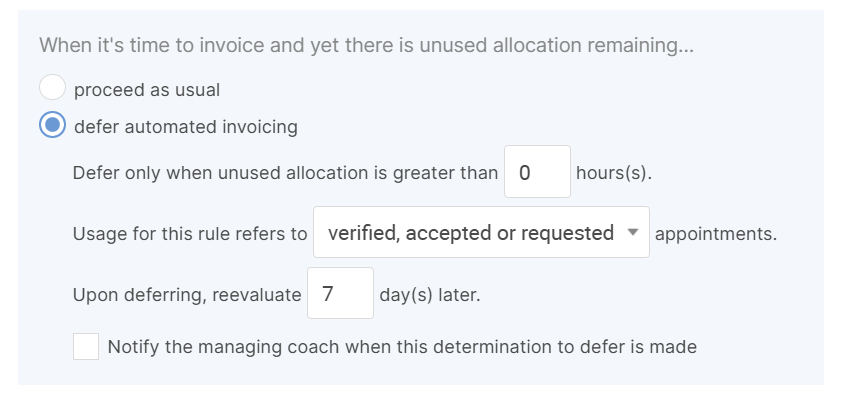But what if you want to have clients pay for appointments only after they've used them? This is nice when the rate of using up their allocation might not be consistent (e.g. 1 appointment this month, 3 the next, and so on)?
For this you can choose to defer automated invoicing when there is unused allocation remaining.
The controls to do this are in the "When it's time to invoice and yet there is unused allocation remaining..." box within an Engagement's Invoicing Plan:

The default is to proceed as usual, i.e. to NOT factor in the presence or absence of remaining allocation when it's time to invoice.
But if you choose "defer automated invoicing", you'll find some options:

This is a little abstract, but ultimately amount to you giving CoachAccountable marching orders on how to handle things when the (routine) invoicing date comes around.
In this example:
- If the client in this Engagement has any allocation remaining at all (i.e. any amount greater than 0 hours), CA will NOT send the invoice.
- ALL appointments (i.e. verified, accepted or even merely requested) will count in the determination how much allocation has or has not been used.
- If deferring applies (because there's any remaining allocation), CA will wait 7 days until possibly invoicing again.
- CA will NOT send the managing coach an email when deferring applies.
A few more thoughts explaining these settings:
- If you set the rule to defer only when the unused allocation is greater than, for example, 2 hours, you're saying that "2 is close enough" to count this as worth invoicing again.
- If you set the "Usage for this rule refers to" to "only verified" appointments, that will typically have the effect of NOT counting appointments that still scheduled in the future (because, TYPICALLY, appointments are marked as verified only after the appointment date as passed and the appointment has presumably occurred). This means invoicing will proceed most conservatively, i.e. occurring only after appointments have actually happened, and not been merely scheduled.
- To tightly correlate invoicing to follow appointments, you might have CA reevaluate 1 day later upon deferring. This would have the effect, for example, of invoicing one or two days after an Appointment occurs (depending on the rule you have set to automatically mark Appointments as verified).
- It can be nice to notify the managing coach when the determination to defer is made, when you expect deferring to be the exception rather than a common occurrence. In that case, deferring represents a certain "stalling out" of the coaching relationship, a failure to schedule sessions at the intended cadence. Notifying a coach of this is an opportunity to reach out to the client and course correct.
Thus by having a regular invoicing plan, BUT with rules to defer when there is allocation remaining (i.e. appointments that aren't getting scheduled or haven't yet happened), you can have CA automatically invoice your clients only AFTER their appointments have been used up.